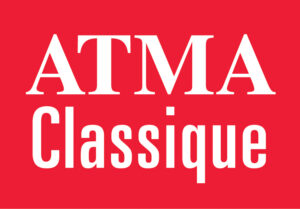Music in lockdown: musicians talk about life during the COVID-19 pandemic
Mathieu Lussier
1. What was your last live public performance before the lockdown began?
On March 12, my wonderful friends and colleagues in Pentaèdre and I gave a concert with Les Violons du Roy at the Palais Montcalm in Quebec City. We were the guest soloists. I had the pleasure of conducting one of my works on the program. Just before the concert began at 2 pm, we listened to the Prime Minister tell us that gatherings of more than 250 would no longer be permitted. And as we were leaving the stage just before one of the last pieces, our horn player Louis-Philippe Marsolais said to me: “Go for it. It’s probably your last concert for some time …”
2. How has your daily routine changed during the pandemic?
Actually I now have a daily routine, something I didn’t have before the pandemic! I work from home. At midday I try to take a break and go for a short walk, and I try to get some exercise at the end of every day. I have to admit that I quite like the rhythm of working from home …
3. What have you found to be the most challenging aspect of this new reality?
I find it difficult to imagine what life is going to be like in the next months or years…. More and more we are coming to realize that we have to stop thinking that in the short or medium term, we will be able to go back to the way things were. We’ll have to think about the future without knowing what the rules will be. We’ve got to develop several scenarios while knowing we lack the knowledge to realize them. It’s a really peculiar and confusing time.
4. How are you keeping busy now that live concerts have been suspended?
I am also a university professor and was appointed vice-dean of the faculty of music at the Université de Montréal in the summer of 2019. As such, I have been plunged into intense crisis management, with daily meetings aimed at rapidly shifting teaching to online platforms so as to save our students’ term. For years now my career has involved these two sides and they are, at times, difficult to reconcile. Stopping concerts has created a huge artistic void, but since nature abhors a vacuum, the schedule has very quickly filled up with other things.
5. What music do you find yourself turning to most frequently since the pandemic hit?
I have been listening to much more music since the pandemic began. My last concert featured music by the English composer Gerald Finzi: his magnificent and suave Romance for strings and the Bagatelles for clarinet and strings. Since I always have the music from my latest program lingering in my head, I spent several days — several weeks, in fact — in this world of English Romanticism. Then I made some wonderful discoveries listening to discs: to another masterful recording by Mélisande Corriveau, viola da gamba and Eric Milnes, harpsichord this time dedicated to Marin Marais; the most recent CD by Jean Rondeau and Thomas Dunford; the latest disc from the Jupiter ensemble, also directed by Thomas Dunford; and to a surprising discovery suggested by my friend Martin Carpentier, Pentaèdre’s clarinetist, of Vivaldi concertos reconstructed from opera arias and played on clarinet by Martin Fröst with Concerto Köln.
6. Have there been any silver linings/unexpected benefits for you resulting from this time in isolation?
Bizarrely, though overloaded by my administrative tasks at the faculty of music, I have been gripped by the need to create and play music. I’ve picked up my bassoon just for pleasure more regularly than in normal times. I have a new solo disc project and I have started a research project on the wind symphonies of the French Revolution. I’ve painted a bit, and have written both a new wind quintet, several arrangements and a duo for bassoon and cello. Above all, I have become aware, fully and physically, how much I love making music.
7. Any words of advice as we try to get through this?
Take the time to breathe. Listen to lots of music. Go for walks along a shoreline (Rivières des Prairies is magnificent at the close of a spring day). Think more abstractly about projects and take the time to do so well.
Interview by Luisa Trisi, Big Picture Communications
Translation by Seán McCutcheon
